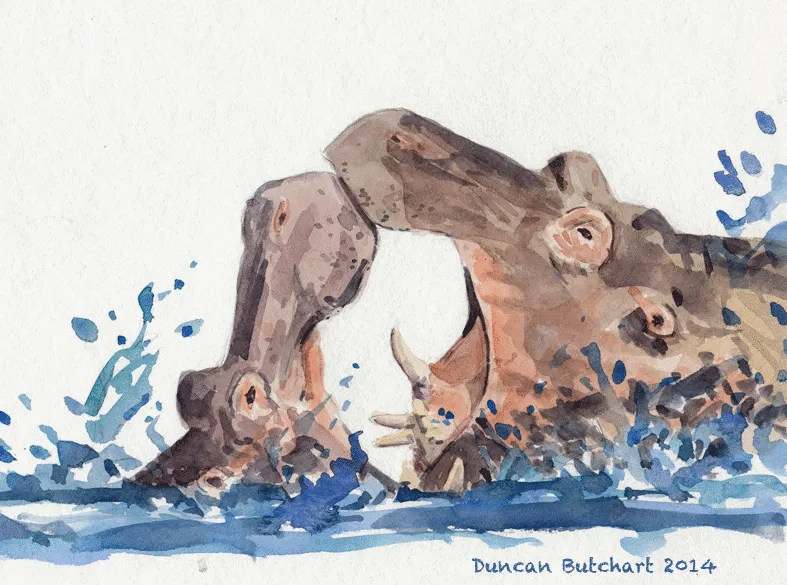Kiboko the Hippo
6 January 2015 | The Mara | Duncan Butchart

Mention the Maasai Mara, and images of wildebeest herds desperately trying to avoid the snapping jaws of crocodiles spring immediately to mind. And thanks to Jonathan Scott and the legion of photographers and cinematographers that have followed him, the Mara is also recognised as offering unparalleled viewing of lions, cheetah and leopards. Elephants are here too, of course, as well as those most iconic of all African animals – the giraffe and the zebra.
However, there is one animal in the Mara that rarely gets the attention it deserves – the hippo – or kiboko, in the local Swahili tongue. If the hippo occurred in the rivers and lakes of the USA or Australia, it would no doubt be accorded ‘national animal’ status and entire tourist routes would probably be set up around its occurrence. It is, after all, second in bulk only to the elephant, and not without personality.
Perhaps the reason that this bulky beast is so often overlooked is that – for much of the time – only its eyes, ears and nostrils can be seen above the water. A cunning piece of evolutionary adaptation to a semi-aquatic life if ever there was one. Hippos spend most of the day half-submerged, simply chilling out or sideling up to their pod mates, slowly digesting the previous evening’s meal of grass and surreptitiously fertilizing the water with their dung. They are able, by the way, to hold their breath underwater for about five minutes and once submerged can happily walk about on the riverbed.
Come sunset, however, and hippos get restless, and hungry. They emerge from their watery refuge in search of grass. With the broadest mouths in the animal kingdom (well, excepting whales) they munch through swathes of the green stuff like a rubber-coated combine harvester, leaving a lawn fit for Tiger Woods in their wake.
When rival hippos clash – which males must do to attain or maintain dominance over a stretch of river and the females that inhabit it – it is one of the most dramatic battles in the animal kingdom. The great ‘river horses’ (as the hippo was once known to the Nile-dwelling Egyptians) attack each other with jaws agape. The size and purpose of their impressive tusks now becomes evident. As if in a boxing ring, they jab and dive, massive heads swinging back and forth, the sharp ivory tusks delivering slicing blows to exposed flanks. Blood flows freely. These tussles can go on for up to an hour before one hippo backs down and retreats. Once defeated, the vanquished hippo must regain its strength then challenge another rival, or spend the rest of its days in isolation.
Hippos abound in the Mara River and Angama Mara guests are sure to be captivated by these fat yet feisty creatures.
TAGGED WITH:


